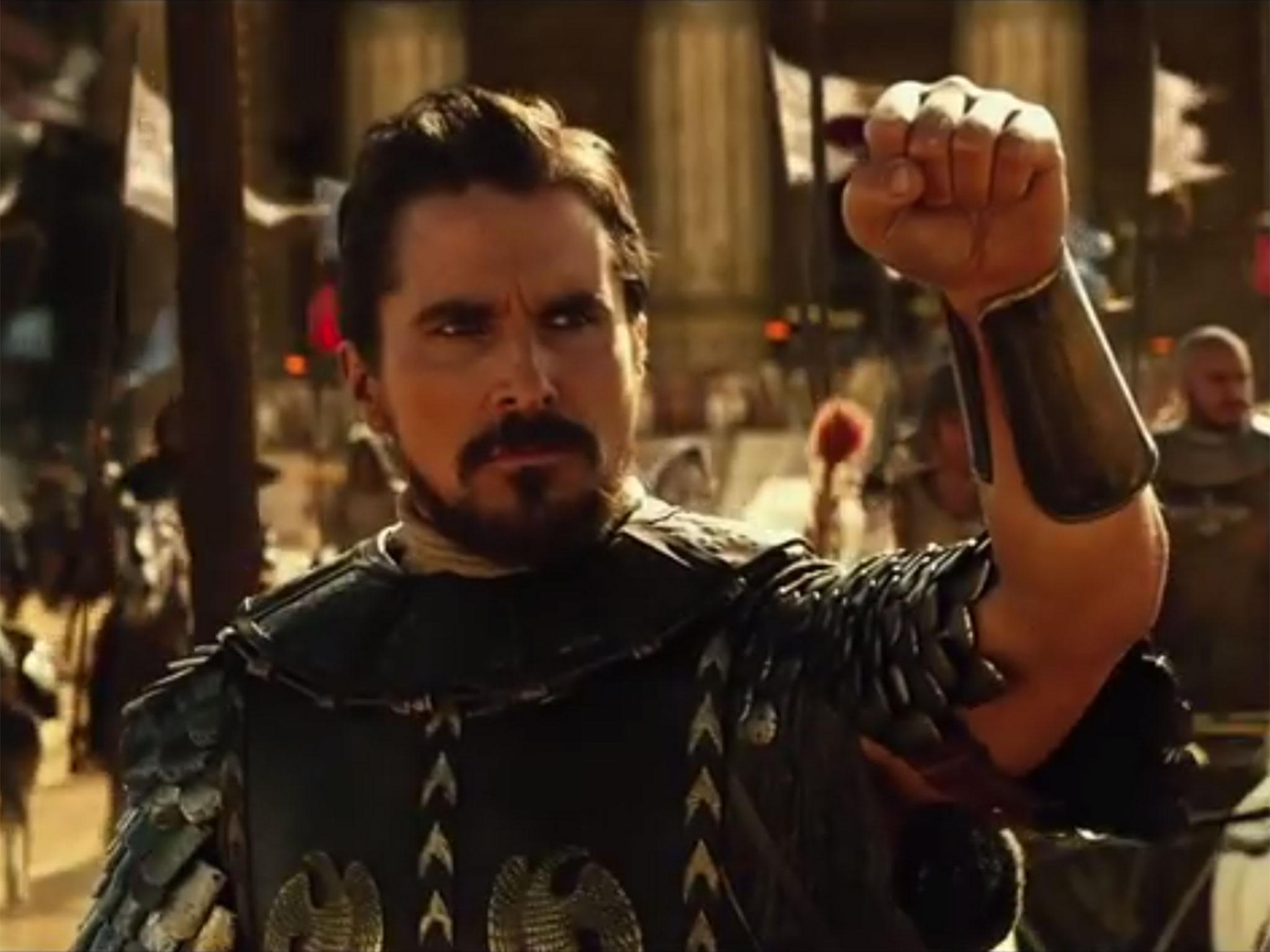Ridley Scott, it’s not about casting 'Mohammad so-and-so', it’s about realising you have a duty to make stars of non-white actors
‘Tax rebates’ is not a sympathetic response to accusations a £130m film is racist

Your support helps us to tell the story
From reproductive rights to climate change to Big Tech, The Independent is on the ground when the story is developing. Whether it's investigating the financials of Elon Musk's pro-Trump PAC or producing our latest documentary, 'The A Word', which shines a light on the American women fighting for reproductive rights, we know how important it is to parse out the facts from the messaging.
At such a critical moment in US history, we need reporters on the ground. Your donation allows us to keep sending journalists to speak to both sides of the story.
The Independent is trusted by Americans across the entire political spectrum. And unlike many other quality news outlets, we choose not to lock Americans out of our reporting and analysis with paywalls. We believe quality journalism should be available to everyone, paid for by those who can afford it.
Your support makes all the difference.Hollywood is a funny old place so it is a good thing that every so often one of its denizens takes an energy-boosting bite of kale, spritzes on the hand sanitizer and descends from its hype-ridden hills to explain to mortals just what on earth it was thinking.
You know the kind of thing: Christopher Nolan patiently explaining to audiences that no, Interstellar isn’t a muffled nightmare, the dialogue is impossible to hear on purpose, because he has always loved films that “approach sound in an impressionistic way”. Or, at the more prosaic end of things, James Cameron talking about his upcoming Avatar sequel, which will, he says, be so good that “you will shit yourself with your mouth wide open”. Odeon will be thrilled.
The latest Hollywood maestro to pull back the curtain on the mystical directorial craft is Ridley Scott. He is in warming up for the release of a Biblical epic, Exodus: Gods and Kings, about Moses, who is played by Christian Bale from Wales. There is also Ramses, played by Joel Edgerton from New South Wales, and Tuya by Sigourney Weaver from New York. As one film blog put it, “It’s White Moses Versus White Pharoah Saving A Bunch Of White Guys From The Other Bunch Of White Guys, None Of Whom Should Actually Be White.”
Scott has duly been accused of whitewashing history, which is not entirely fair: there are black and ethnic minority actors in the cast – scroll down and “Ramses’ servant” is played by Emeka Sesay, “Egyptian Thief” is played by Adrian Palmer and “Egyptian Lower Class Civilian” is played by Ibrahim Fagge.
How has this happened? This week, Scott had the answer: it’s all Mohammed so-and-so’s fault. “I can’t mount a film of this budget, where I have to rely on tax rebates in Spain, and say my lead actor is Mohammed so-and-so from such-and-such,” said Scott. “I’m just not going to get it financed. So the question doesn’t even come up.”
There are so many things not quite right with this explanation, it is hard to know where to start. Perhaps with “Mohammed so-and-so from such-and-such,” which suggests that Scott’s take on the Promised Land may not be as culturally sensitive as one might have hoped. Or the fact that Scott, a terrifically successful director estimated to be worth somewhere in the region of £90m, thought that “tax rebates” would be a sympathetic response to the accusation that his £130m blockbuster is racist.
Strangest of all is the assertion that the question didn’t even come up. Amid all the location-planning, set-building, CGI-fiddling, battle scenes and marshalling of 6,000 extras, did no one – not even the lowly make-up artist tasked with bronzing Edgerton’s thighs – raise the issue that the cast looked a bit white?
Perhaps Scott is to be pitied. Hollywood is a dumb old place where money talks louder than sense most of the time. Directors and writers spend years honing their idea only to see a box-office-obsessed producer rip it apart and stitch it back together, with product placement and big names where their vision used to be. Of course, stars are crucial to the success of a film – especially one where only millions of bums on seats can recoup an overblown budget – but stars are made, not born.
Even big names have to start somewhere, and some of today’s best and highest-grossing stars made their mark in blockbusters. Few had heard of Tom Hiddleston until he played Loki in The Avengers, the same goes for Robert Pattinson in Twilight, Andrew Garfield in Spider-Man or Keira Knightley in Pirates of the Caribbean. Gambling on an unknown is a fine Hollywood tradition.
As for the idea that audiences might be resistant to ethnic minority actors, a look through the Oscar and Bafta winners and nominees of the past few years tells a happily different story. There is a world of talent far beyond Sunset Boulevard: Lupita Nyong’o, Chiwetel Ejiofor, Djimon Hounsou, Gabourey Sidibe, Barkhad Abdi and Freida Pinto are just some of the brightest stars in what should be a truly global industry.
Should be, but often it is not. The 2014 Hollywood Diversity Report, published last February, showed that only 11 per cent of films had an ethnic minority actor in a lead role. Scott is clearly not alone in believing there is no money in Mohammed. Nevertheless, it is in his power to make “so-and-sos” into stars. And, if he expects the world to pay to watch his films, it is also his duty.
Join our commenting forum
Join thought-provoking conversations, follow other Independent readers and see their replies
Comments